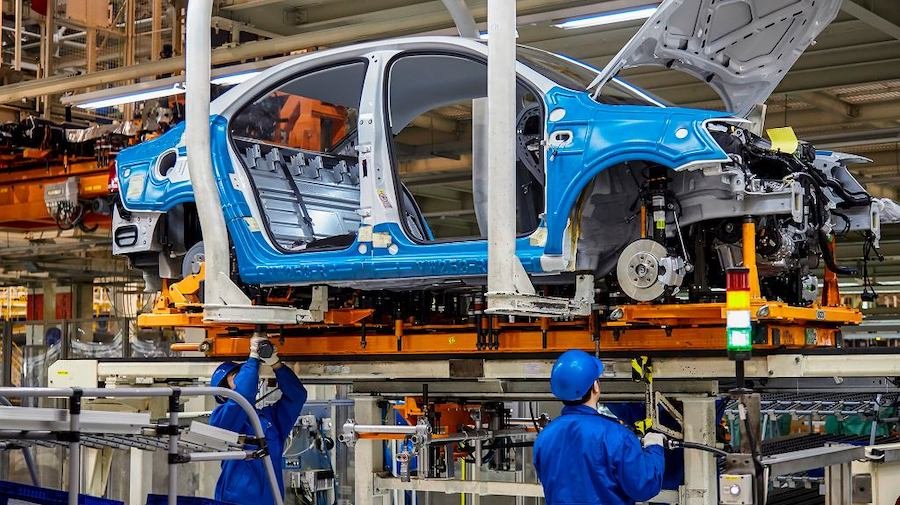German Automakers Are Really Being Left Behind By Chinese EVs

You don’t have to just take my word for it; EV buyers and shoppers around the globe understand just how strong of a value Chinese automakers offer. Globally, as the car market becomes increasingly electric, longstanding car brands from South Korea, Europe, Japan and North America are finding themselves on the side of a tough battle as Chinese EV brands make inroads both inside and outside of China. German brands, in particular, are having a really rough go lately. China was once considered a golden goose for these brands, but now they’re facing huge losses in profit and market share, and it’s not clear if they can compete.
According to Bloomberg, BMW, Mercedes-Benz, Porsche and Audi—along with other adjacent luxury European car brands—are facing huge slumps for Q3. BMW posted a dramatic 30% drop in sales and Porsche was down 19%, its worst quarter in a decade. VW as a whole (which includes Audi) admitted it was down 15%. Mercedes-Benz fared a bit better, with only a 13% drop for Q3.
This is still not great news for European manufacturers. Bloomberg’s piece goes in-depth, interviewing Ryan Xu, a Chinese entrepreneur in Guangdong who recently purchased a Nio ET5. The mother of three opted for the ET5 because it felt more unique and better connected compared to a Porsche Taycan or Mercedes Benz EQE. For example, the facial recognition of the ET5 allows the car to greet Xu’s kids by name.
The large sales slump is an existential crisis for these big European brands. Do they stay, or do they go? To many German automakers, pulling out isn’t an option, as much of their supply chain is tied up in China. Despite shrinking sales, these brands sell more cars in China than at home in Germany. Turning around quickly to capture China's disinterested market isn’t easy; the rollout of China’s domestic EVs with well-executed software has been nothing less than an onslaught. By comparison, glitchy and basic software in expensive German cars hasn't enticed Chinese buyers. Cars like the China-only BMW i3L were sold for as little as $23,000—a whopping $14,000 cheaper than normal—just to get folks in the door. Not only is that unsustainable, it didn’t even work.
This all tracks with what I’ve personally experienced in China this year; China’s EVs are generally pleasant, convincing devices that hit hard on software and car connectivity. If German automakers want to compete with Chinese brands both in China and at home, they will need to figure out a way to match what these brands offer, and fast. As it stands, German automakers are losing market share quickly. They used to control 25% of China’s market before the pandemic, but that has shrunk down to just 15%. We'll have to wait until next year to see if they've found the bottom.
Related News
